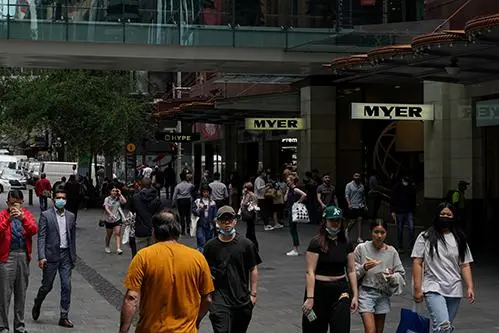PHOTO
SYDNEY - Australia's tally of people with the new Omicron variant of COVID-19 edged higher on Thursday, prompting state governments to bolster domestic border controls as health experts wait to learn more about the dangers posed by the strain.
The country's most populous state, New South Wales, reported its seventh case of the variant, a person who arrived on Nov. 23 from Doha, Qatar, and noted that the person had not been in southern Africa, suggesting they caught the virus on the flight.
While the Australian federal government has urged states to avoid a return to the stop-start lockdowns that have defined the country's virus response, health authorities urged caution until they knew more about Omicron's infectiousness and virulence.
"We know this virus is dangerous, it does come out in some different forms," New South Wales Health Minister Brad Hazzard told reporters.
"Don't take it lightly."
The state's capital, Sydney, Australia's largest city, came out of nearly four months of lockdown to contain a Delta outbreak in early October and has been gradually easing curbs as vaccination rates have risen.
But other state governments have been upping their restrictions on interstate arrivals. South Australia, which has no recorded Omicron cases, said it would make all people arriving from New South Wales take a COVID test.
The tourism-friendly island state of Tasmania said this week it would ban most overseas arrivals, at odds with federal government moves to allow vaccinated Australians entry into the country if they undertake home quarantine.
Australia has also delayed by two weeks its plan to reopen borders to skilled migrants and foreign students, while citizens returning from southern African countries must undertake two weeks of hotel quarantine.
Australia's closed international border and tough restrictions on domestic movement helped it avoid the high numbers of COVID-19 deaths recorded in many other countries, with about 212,000 cases and 2,000 deaths.
(Reporting by Byron Kaye; editing by Richard Pullin) ((byron.kaye@thomsonreuters.com; +612 9171 7541; @byronkaye;))





















